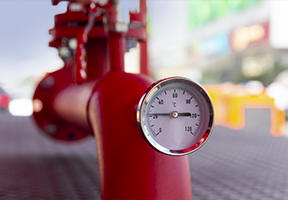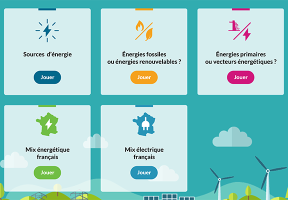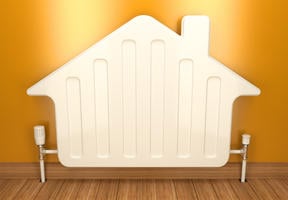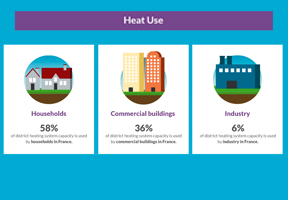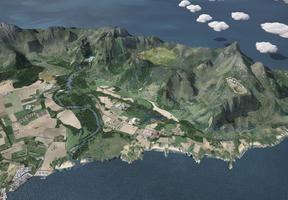Issues Surrounding Home Heating
5 min read
Designing tomorrow’s homes is a crucial factor to ensure a successful and keep in check. Heating is an essential aspect of future homes and needs to be analyzed from both a community standpoint (city, district, apartment block), and from the perspective of individual users.

© Getty / RuslanDashinsky
The Impact of Heating on the Environment and the Climate
Heat is an , just like and fuels, which means that it conveys energy between primary sources (fossil fuels, solar, , hydro, etc.) and the final applications destined for users.
It is the main source of energy use, as generating heat accounts for 45% of final energy consumption in France. Half of it is used in homes, 30% in industry and 20% in the tertiary sector, which just goes to show that domestic heating is a major issue in the energy transition in France.
Most homes today are heated by natural gas and electricity (around 40% each). In rural areas, fuel oil, an oil derivative, is still commonly used.
Even if electricity is
in France thanks to
, fossil fuels are still predominant, and have a significant impact on greenhouse gas emissions, one of the leading causes of climate change.
Improving Energy Efficiency and “Decarbonizing Heat”
There are two main ways to reduce emissions produced by heating and, at the same time, reduce France’s dependency on oil and gas imports:
- The first is to consume less heat, by being more frugal (by slightly reducing the temperature in your home, for example), and making equipment and buildings more energy efficient,
- and the second is to decarbonize heat production by using renewable, rather than fossil fuel sources.
Let’s have a look at how these objectives can be achieved.
Eco-districts, District Heating Networks, Heat Recovery
Urbanization has a central role to play in the design of future cities and the efficiency of heating for homes, offices and public buildings.
- New eco-districts. Based on standards, eco-districts can impose the construction of low-energy buildings, thanks to their orientation towards the sun, construction material quality and efficient insulation. They can encourage collective heating through district heating networks, the local use of solar , deep facilities and the creation of green areas to reduce heat islands. Have a look at the example of the Clichy-Batignolles eco-district in Paris.
- District heating systems. A neighborhood heating system comprises a boiler and two underground networks. An “outgoing” network carries hot water or steam to the different places to be heated. Each site draws off part of that energy. An “incoming” network carries the colder water back to the boiler. Different renewable energies can be used to power the boiler: wood-to-energy, , or waste to be incinerated. Have a look at some examples from around the world.
- Heat recovery. An estimated 1/3 of the energy consumed by industries (nuclear, agro-food, chemical, metalworks, etc.) is lost as heat, referred to as “waste heat”. Various techniques can be used to recover the heat so that it can then either be consumed on site (to heat premises for example) or channeled to a heating system to supply apartment blocks. Data centers are a particularly important source of heat recovery - they are becoming more and more powerful and require cooling systems that consume massive amounts of energy.
Efficient Heating Systems
High-performance heating systems have good and are based on renewable energies. What kind of systems are we talking about?
- air-source heat pumps (AHP). Air-Air heat pumps for domestic use, take heat from the air outside to pump it directly into the air inside the home. Air-Water heat pumps, installed outside, also draw calories from the air outside, but inject them into the central heating system (radiators or underfloor heating).
- geothermal heat pumps. These pumps use the calories in the ground, which requires a capture network to be buried in the garden of a house, to supply radiators or underfloor heating. The downside of this solution is its cost.
- solar energy, destined to develop strongly by 2050, is used to produce electricity (through solar panels) and heat (through thermal tubes). Solar power, which will be easier to store thanks to the development of batteries, can contribute to electric heating, while solar radiation will contribute to producing domestic hot water.
- biogas, produced by methanation on large farms or sewage treatment plants, can be incorporated into natural gas networks. It can therefore contribute to gas heating systems which, alongside electrical heating systems, are the leading sources of heat generation.
- wood energy, in the form of granules or pellets, is becoming increasingly widespread in both self-contained stoves and in boilers for district heating systems. It requires sustainable forest management.
Using Domotics to Create Smart Homes and Buildings
Capitalizing on the widespread and rapid development of digital technologies, domotics can be used to accurately adjust heating systems in individual homes or an entire building.
Standard thermostats have given way to smart ones, able to make decisions based on the collection of data series: changes in external temperature, a window being opened, or whether members of the family are at home or not. It can be remote-controlled, and the heating turned down or off if nobody is home.
Technological Innovations of the Future
- . This gas, represented by the formula H2, can be used to produce heat and electricity using a or be used in specific boilers that are still being tested. The issue here is to find a means of obtaining large quantities of “green hydrogen”, i.e. not produced using fossil fuels as it is currently the case.
- Underground Seasonal Thermal Energy Storage (STES). This process involves collecting “sustainable heat” or “waste heat” recovered from an industrial process. Captured when it is not needed, the heat is stored underground and is used several months later, depending on demand.
- Solar paint. Researchers are currently working on very thin, flexible photovoltaic cells, and even on “solar paint” which could produce hydrogen or electricity.
- And what about sea water? Seawater heat transfer ( thalassothermal energy) can be used to recover the thermal energy from the sea, in the same way as it is recovered from the air or the ground using a heat pump. A test has begun in one of the eco-districts in Marseille.

